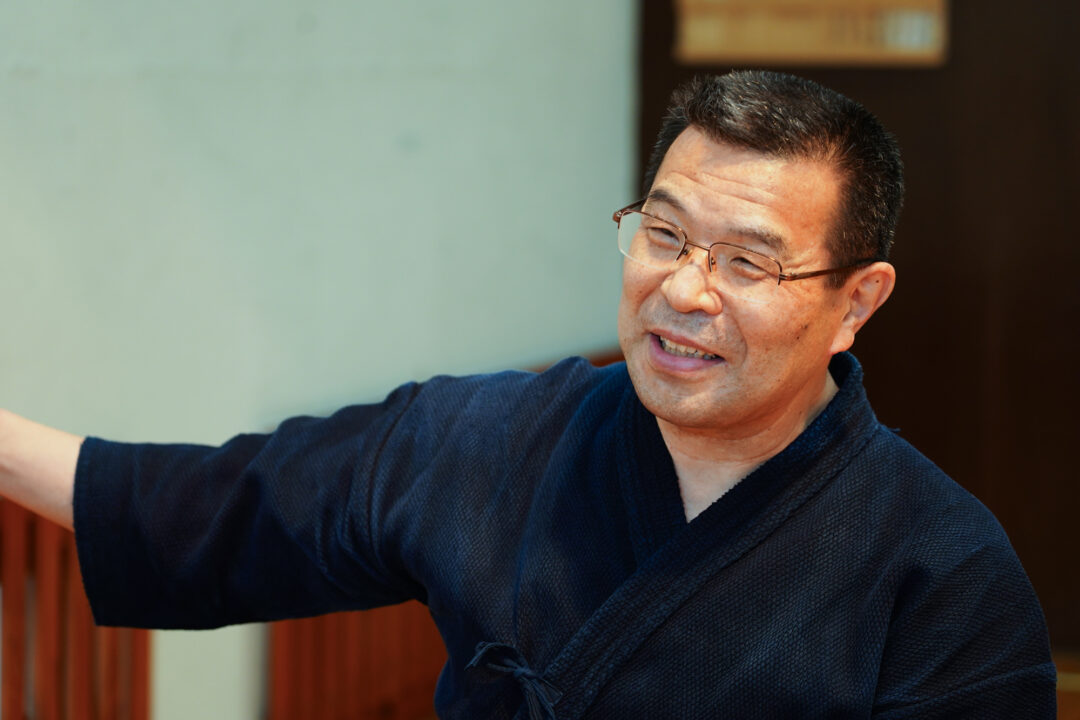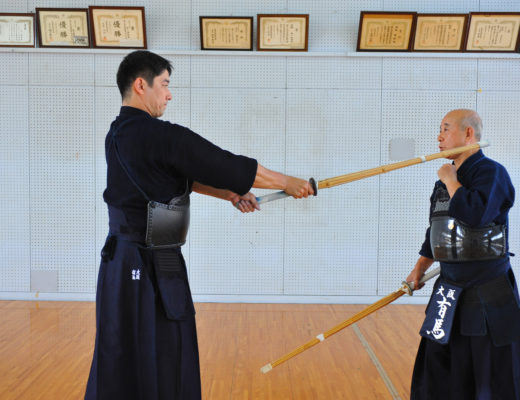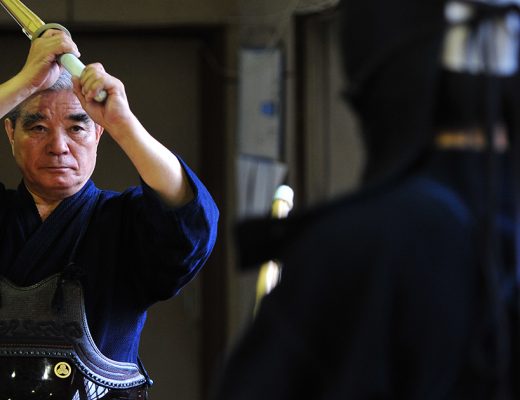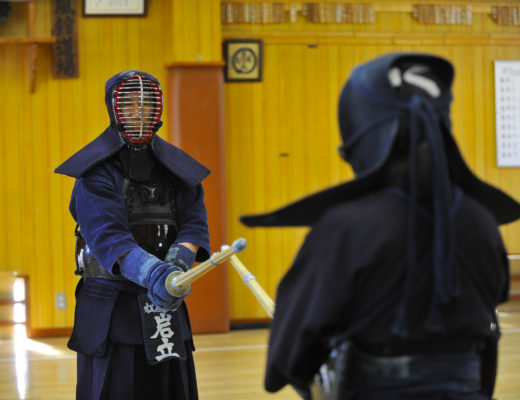2024.6 KENDOJIDAI
Composition: Teraoka Tomoyuki
Photography: Sasai Takamasa
Translation: Pepijn Boomgaard
“I believe that the spirit of Zanmai (the state of being immersed in something) helps one improve their Kendo, and I want to apply this too,” says Aichi’s Yamazaki Masaru. Having studied under his father, former Japanese champion, as well as at Kokushikan and the Aichi Prefectural Police, what does he imagine the ideal form of Kendo practice to be? We asked him to reflect on the path he has taken so far.
Yamazaki Masaru (Hanshi 8th Dan)
Born in 1957 in Niigata Prefecture. He started Kendo under the supervision of his father Shohei at Shobukan Dojo. He went to Kokushikan High School and Kokushikan University. After graduation, he joined the Aichi Prefectural Police Department. Participated in various tournaments, such as the All Japan Championship and All Japan Police Tournament. Won the National Sports Festival (Kokutai) twice. He passed 8th Dan in 2006 and received his Hanshi in 2022. Currently, he is an instructor at the Aichi Institute of Technology and a part-time teacher at Kaiyo Secondary School.
Efforts that couldn’t be seen.
Father’s attitude towards Kendo
I believe that each generation has their own goals in regards to Kendo training*. It has been more than a few years since my father Yamazaki Shohei led me to the path of Kendo, but I have not always followed the correct path in a straight line. I think it is important to consider the twists and turns as part of my training, and to focus on achieving the goals in front of me.
Looking back on my training so far, I was strongly influenced by my father when I started Kendo as a child. We were a Kendo household, and Kendo always came first. I was told, “Even if you miss school, don’t miss Kendo,” and, “Your cold will go away if you do Kendo.” In other words, I was trained in quite a Spartan way. However, I don’t remember much technical instruction from my father. In those days, teachers did not teach techniques in detail. I remember mainly doing Uchikomi and Kakari-geiko, and crying as I trained with my teachers.
My father won the All Japan Championship at the age of 45, but I never saw him doing Suburi or physical training at home. He worked at the city hall and was not a Kendo specialist, so the only training he did was after work at the local Dojo. I think the main reason that he was able to become champions in spite of this was because of his attitude towards Kendo. Although I never saw him practice at home, I believe that he was actually making efforts at places where I couldn’t see him. On weekends, my father would take his Bogu and travel not only throughout the prefecture, but also to Tokyo. He had a tremendous passion for Kendo, and I hope to be like him.
I spent my childhood watching my father, and he encouraged me to Kokushikan High School in Tokyo. In Niigata, I practiced the basics every day, but at Kokushikan, I began to think about how to win matches. I spent more time figuring out how to create openings and how to use various techniques. Nowadays, there seems to be a tendency to think that it is not good to be concerned about winning too much in Kendo. However, I believe that it is acceptable to have such a period, and that this experience will have a positive impact on one’s Kendo later on. I just mentioned my father’s attitude towards Kendo, and I think one attitude is to practice greedily in pursuit of victory. Especially for students, winning is the most important source of encouragement for improvement. I would like everyone to think and practice hard, and display your growth in competition.
The words of Ono Soichiro
“Do correct Kendo”
At Kokushikan University, I had the opportunity to train under Ono Soichiro Sensei. Ono Sensei would come to the Dojo by bicycle. Early in the morning, he would come to the dormitory with a Shinai in his hand and wake up the members of the Kendo club with the words, “Come to morning practice!” I wanted to practice with him, so at morning practice, I would put on my Men faster than anyone else and line up in front of him.
Like my father, Ono Sensei did not give detailed instructions to his students. He would only give me a little advice after practice. I can still remember him telling me to “do correct Kendo.” I think he was trying to remind me to be honest and not use any tricks, but I remember feeling that as a student of Kokushikan, I must always do correct Kendo.
At Kokushikan, every day consisted of Uchikomi and Kirikaeshi. This experience has become the foundation of who I am today. Winning with a correct posture and a correct way of striking. Of course, it is difficult to do everything correctly, but if you keep practicing the basics, even when you lose your posture, the way you lose it is different. When in doubt, you can go back to the basics. This is why I believe that no matter your age, the basics should be practiced.
After graduating from Kokushikan and joining the Aichi Prefectural Police, I once again dedicated myself to Kendo in the pursuit of victory. In police Kendo, the struggle for survival is fierce. On the way from Tokyo to Aichim while gazing upon Mt. Fuji from the window of the train, I made up my mind to become the best in Japan. After joining the police force, I realized that this was not an easy task. Gradually, I made my way onto the team and, thanks to my colleagues, I was able to do well in competition. Everyone had an insatiable appetite for competition and they always gave it their all. In particular, All Japan Champion Higashi Kazuyoshi Sensei’s attitude towards training was wonderful. Following his example, I would do Suburi after practice or visit other Dojo after work. When I won, I was proud. When I lost, I was disappointed. However, I feel that all of these experiences were necessary and are the reason why I am still able to practice Kendo to this day.
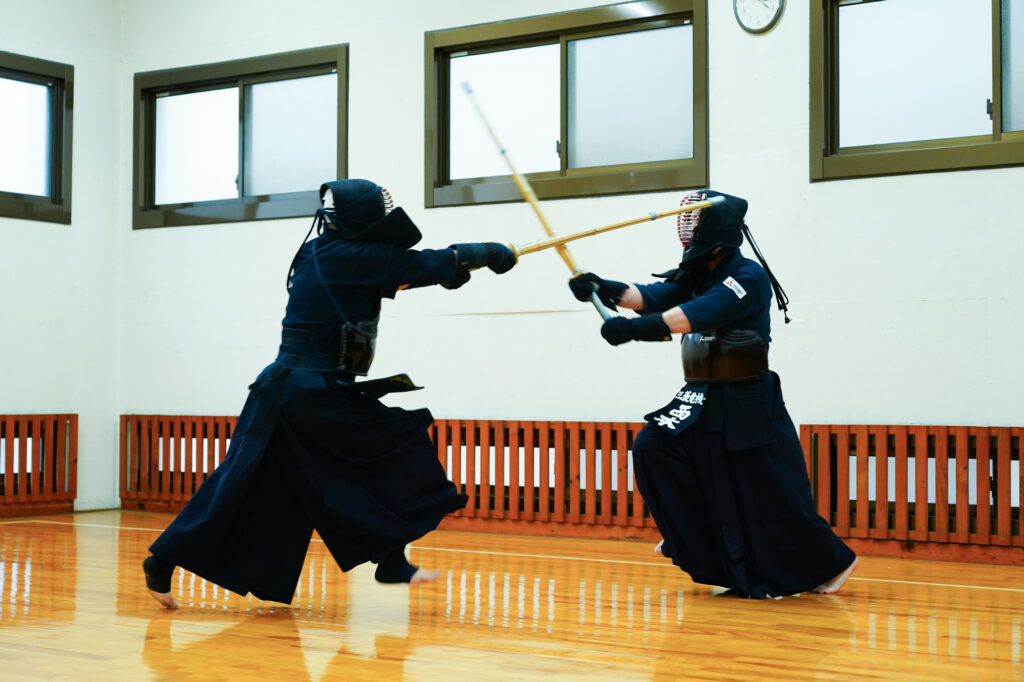
Their is a spirit in your training partner
The rest of this article is only available for Kendo Jidai International subscribers!

